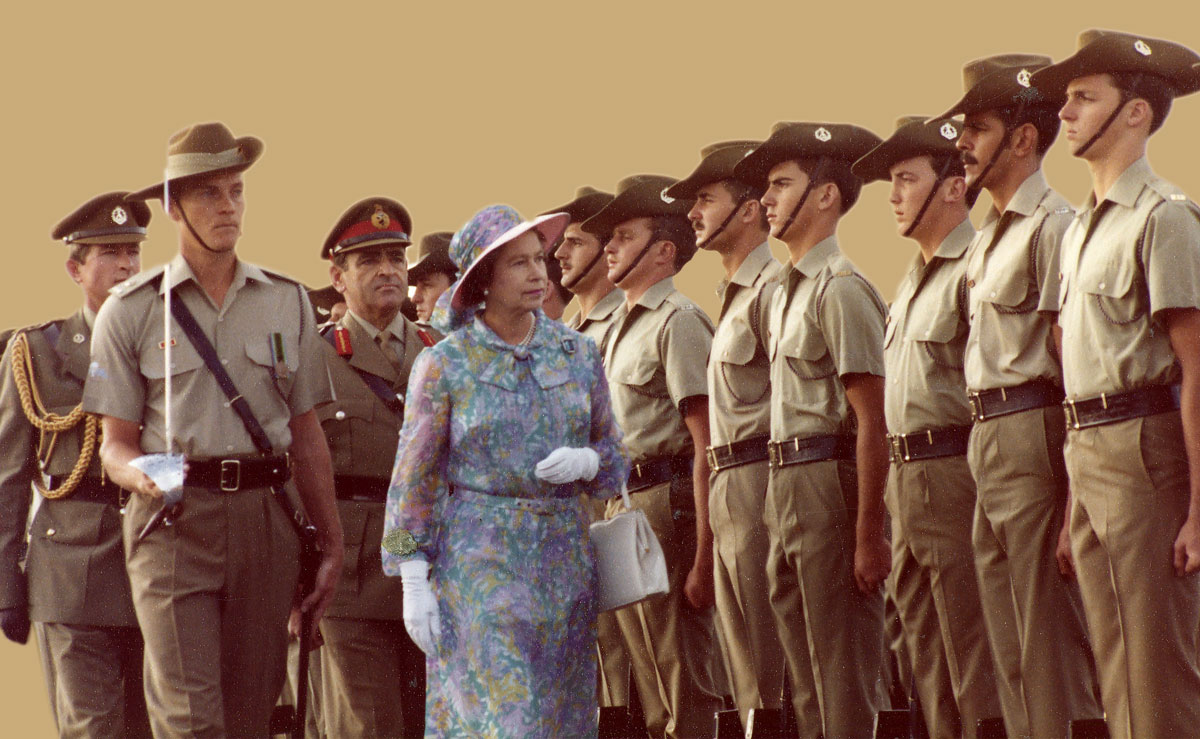Her Majesty Queen Elizabeth II, will be remembered as a true example of resilient leadership. No other British monarch reigned longer than she did. No other monarch was more traveled than she was. She was one of the most notable and recognized figures in the world due to her poised demeanor, her legacy as a leader, and, of course, her distinct style.

Photo by Queensland State Archives
Here are eight other leadership qualities that Queen Elizabeth II exemplified throughout her life.
1. Vision
Queen Elizabeth knew from a young age that she wanted to commit her life to public service. It’s been reported that at 21, during a radio broadcast, she made a promise to the Kingdom that she would devote her life to service. That’s a bold statement to make at such a young age. She carried out that promise to the very end of her life, having appointed her 15th prime minister just days before her passing.
2. Leading by Example
It’s easy when you come from royalty to sit on the sideline and watch others do all the hard work. Not Queen Elizabeth, though. She had formerly trained as a driver and mechanic during World War II. She was a patron to more than 600 organizations pursuing courses that were dear to her. Visiting 117 countries as the UK’s head of state is no easy feat. The Queen had weekly meetings with her prime ministers, and Tony Blair has said that she was an important advisor and sounding board for him during difficult times.
3. Religious Acceptance
The British monarch is the ceremonial head of the Church of England. Queen Elizabeth II was firmly anchored in her Christian beliefs, calling on people to offer their prayers for her during important occasions, such as her coronation. However, she was always accommodating to people from all faiths. Royal ceremonies were always open to people and religious leaders from all other denominations and faiths. She never imposed her beliefs on anyone. It’s worth noting that British history is littered with recordings of religious persecution, especially in the 16th and 17th centuries.
4. Delegating and Heeding Advice
Being Queen and the head of the Commonwealth meant that her schedule was always full of meetings to attend, briefings to review, and documents to read. The Queen built a solid circle of advisors around her and welcomed advice so as always to make the most informed decisions. She was a master at delegating various duties to other members of The Royal Family, each according to their strengths and interests. According to Buckingham Palace, members of The Royal Family, as a whole, act as patrons or presidents of over 3000 organizations.
5. A Natural Curiosity
Queen Elizabeth II was also known for having a curious mind and was always keen on meeting and interacting with world leaders and ordinary people alike. She was always interested in learning how citizens, including doctors, coal miners, engineers, and other professionals, were doing in their lives. The Queen also met a long list of celebrities and sports personalities during her lifetime, recognizing their pivotal roles in society. Even at an advanced age, she wanted to learn and understand current events and their implications for the future of the Kingdom and the world.
6. Respecting the Will of Others
As a monarch, one may be tempted to impose their will on others. However, Queen Elizabeth showed restraint even when the decisions of others may not have aligned with her own. When Prince Harry and Meghan Markle publicly expressed their intention to leave The Royal family in pursuit of a more independent life, they had not consulted The Queen. The Queen swiftly moved to announce a 12-month transition period to facilitate their exit. She respected their will. The Queen also always maintained the position that any country in the Commonwealth had a right to choose its own path with regard to recognizing the monarch as the head of state.
7. Embracing Change
Queen Elizabeth did a lot to demystify the monarch and let go of certain practices. For instance, Queen Elizabeth allowed her coronation to be broadcast on television against the advice of senior-ranking government officials. The establishment of a website for the Royal family and the coverage of royal events has helped people to understand the monarchy even more. The charity work carried out by members of the royal family is also well documented on their social media pages.
8. Hard Work and Passion
Articles written about Her Majesty Queen Elizabeth have noted that she had a “crippling sense of duty.” She worked so hard, not for her personal gain but rather for the good of the Kingdom. She put in tens of hours every week, even past the age of 90. Most people retire at 65. The Queen was passionate about public service and hence her resilience in carrying out her duties. Visitors to various royal properties have shared stories of being driven around by The Queen. She loved walking her dogs every day and being around her horses, personal passions of hers that she would share publicly.
There are many other life and leadership lessons to draw from the life of Queen Elizabeth II, including remaining true to your values. Queen Elizabeth came into leadership at a time when a vast majority of world leaders were male. This remains the case even today. Yet she remained herself, performing with grace and never disrespecting or making people around her feel less than valued.
All aspiring leaders can learn the importance of remaining true to courses they believe in and acting gracefully, even when wielding immense power.
The Moov Group is an advisory group that helps business owners with staging for sale, managing the first 100 days post acquisition, and making managers leaders. If you want to learn more about how we can help your business, visit us at the Moov Group.


